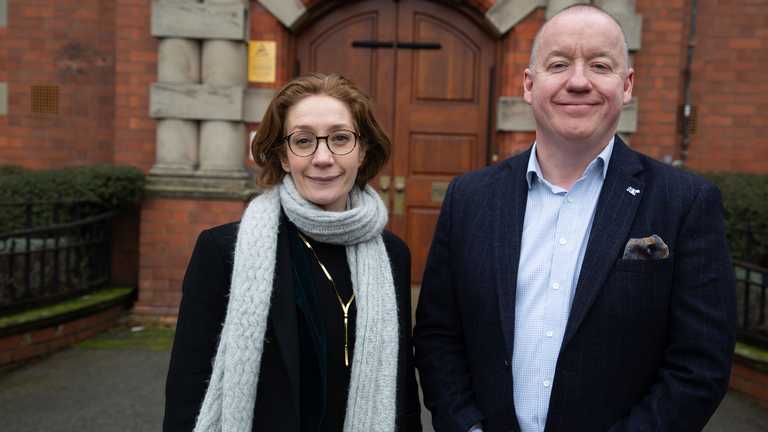

Loading search...
Loading search...
Loading site search...
Loading site search...
Loading site search...
Loading...
Loading site search...
Loading site search...
Posted 31 March 2023
“As someone that doesn't consume added protein products, it has always intrigued me why others pick them over their non-added protein counterpart. I chose to investigate this in the context of labelling to find whether this changed the consumers perception of the product."

A Harper Adams Food student is investigating how people’s perceptions of protein products influence their purchases as part of her Honours Research Project (HRP).
Annabel Rutherford, originally from Oxfordshire, noticed an influx in added-protein products in UK shops and was intrigued to see what was making shoppers choose to consume them.
She said: “As someone that doesn't consume added protein products, it has always intrigued me why others pick them over their non-added protein counterpart. I chose to investigate this in the context of labelling to find whether this changed the consumers perception of the product.
“By finding this, it will allow me to identify whether there is a halo effect present, meaning that consumers perceive these protein products as healthier for them due to the labelling.”
The ‘Halo Effect’ is a term coined to describe how people’s positive impressions can influence their views and feelings. In marketing, the term can be used to examine how customers’ views of a particular product can influence their views on a wider brand.
With her initial research, Annabel discovered that, in the UK since 2016, a 63% increase in the sale of protein bars and other similar products has been seen.
However, she also found there was a gap in the research on links between protein, labelling and the halo effect. She is now hoping to find out more about the effect with her research, which could help manufacturers understand how the halo effect influences purchasing habits.
Annabel ran an online questionnaire to find out the public’s views and is now analysing their responses.
She said: “I found the process of collecting data quite relaxed. I chose a method that would get me responses quickly and without much hassle.
“I am working closely with my data, which is currently following the pattern I hypothesised. From my findings so far, there does seem to be a halo effect present which is more pronounced in specific demographics.”
Annabel, 22, was also given the opportunity to present her project as part of an undergraduate research conference for Food and Business students at Harper Adams in February.
She added: “Presenting at the conference was a great experience to build confidence and my understanding of my own project. Once I had answered the audience’s questions, I felt confident in how well I knew my project.”










We use cookies to ensure that we give you the best experience on our website. If you continue without changing your settings, we'll assume that you are happy to receive all cookies on the website. However, you can change your cookie settings at any time.